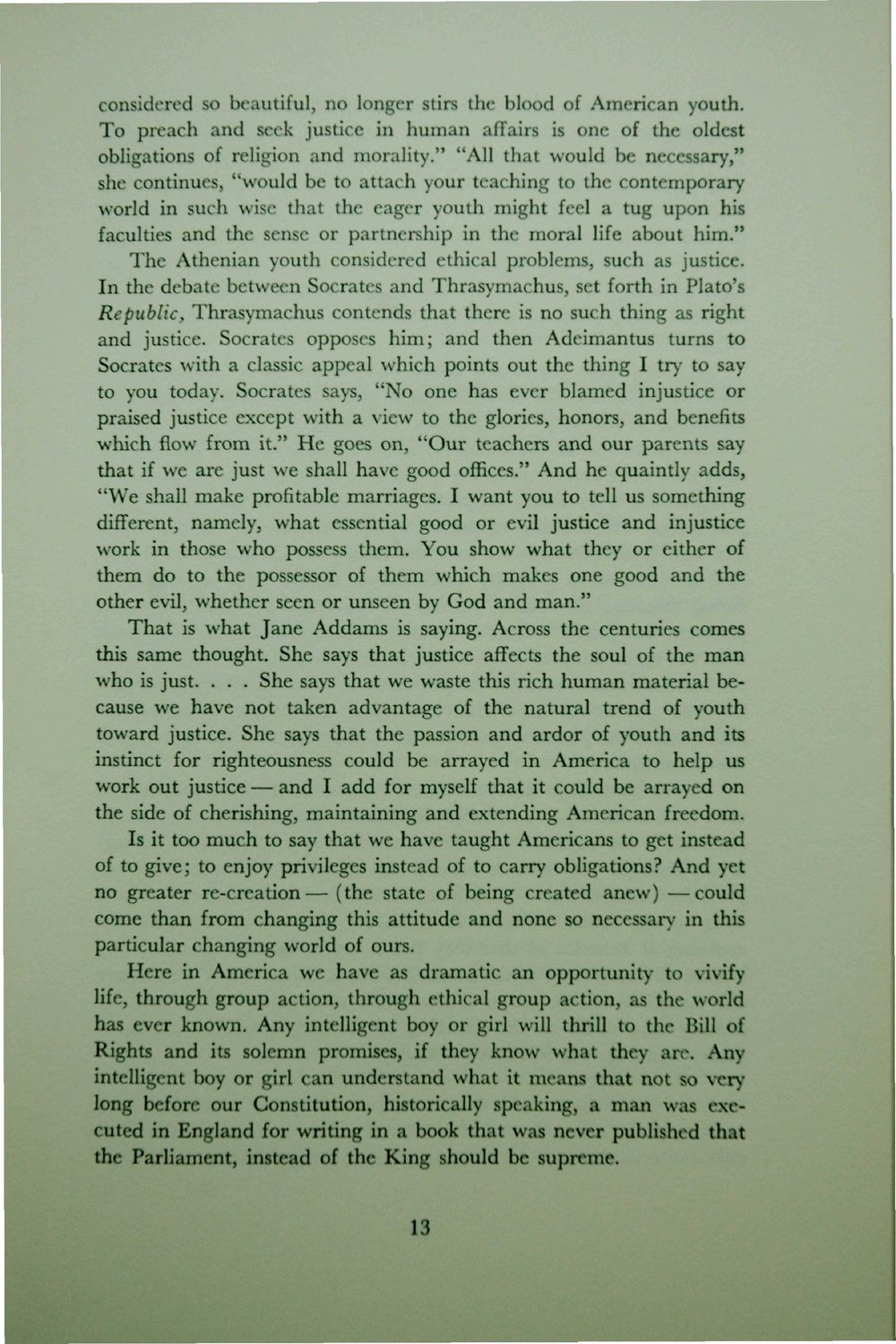| |
| |
Caption: Dedication - Home Economics - Challenge of Home Economics
This is a reduced-resolution page image for fast online browsing.

EXTRACTED TEXT FROM PAGE:
considered so beautiful, no longer stirs the blood of American youth. To preach and seek justice in human affairs is one of the oldest obligations of religion and morality." "All that would be necessary," she continues, "would be to attach your teaching to the contemporary world in such wise that the eager youth might feel a tug upon his faculties and the sense or partnership in the moral life about him." The Athenian youth considered ethical problems, such as justice. In the debate between Socrates and Thrasymachus, set forth in Plato's Republic, Thrasymachus contends that there is no such thing as right and justice. Socrates opposes him; and then Adeimantus turns to Socrates with a classic appeal which points out the thing I try to say to you today. Socrates says, "No one has ever blamed injustice or praised justice except with a view to the glories, honors, and benefits which flow from it." He goes on, "Our teachers and our parents say that if we are just we shall have good offices." And he quaintly adds, "We shall make profitable marriages. I want you to tell us something different^ namely, what essential good or evil justice and injustice work in those who possess them. You show what they or either of them do to the possessor of them which makes one good and the other evil, whether seen or unseen by God and man." That is what Jane Addams is saying. Across the centuries comes this same thought. She says that justice affects the soul of the man who is just. . . . She says that we waste this rich human material because we have not taken advantage of the natural trend of youth toward justice. She says that the passion and ardor of youth and its instinct for righteousness could be arrayed in America to help us work out justice — and I add for myself that it could be arrayed on the side of cherishing, maintaining and extending American freedom. Is it too much to say that we have taught Americans to get instead of to give; to enjoy privileges instead of to carry obligations? And yet no greater re-creation— (the state of being created anew) —could come than from changing this attitude and none so necessary in this particular changing world of ours. Here in America we have as dramatic an opportunity to vivify life, through group action, through ethical group action, as the world has ever known. Any intelligent boy or girl will thrill to the Bill of Rights and its solemn promises, if they know what they are. Any intelligent boy or girl can understand what it means that not so very long before our Constitution, historically speaking, a man was executed in England for writing in a book that was never published that the Parliament, instead of the King should be supreme. 13
| |